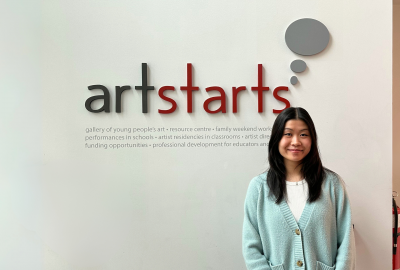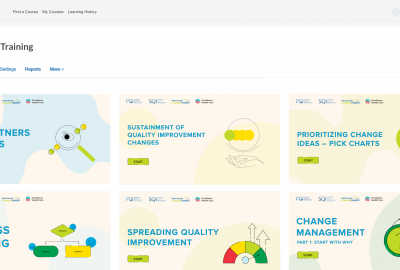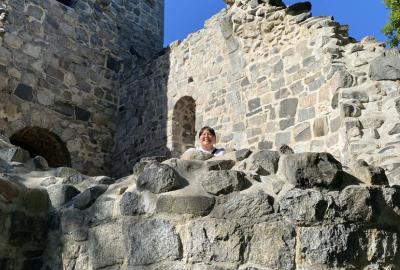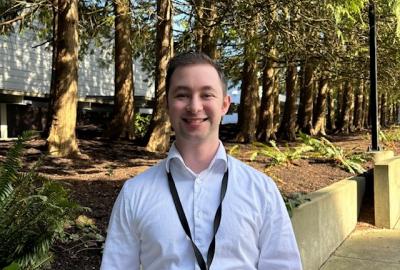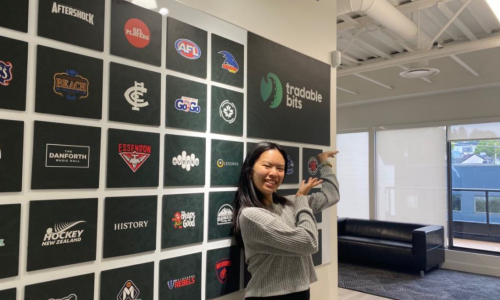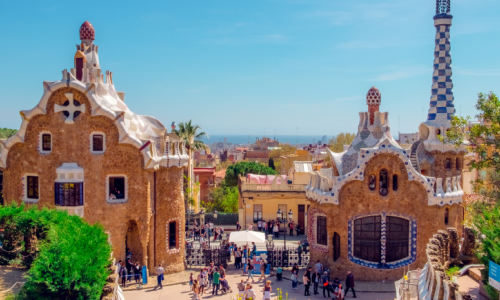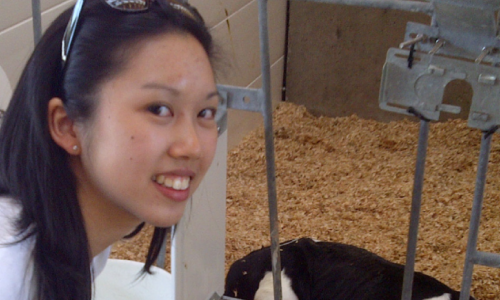When I first arrived in Catalonia, Spain in September 2015, I was in the mindset that my International Co-op placement would immerse me in a single culture. I was stuck with a simplified notion of culture: the idea that a single set of values, customs, and way of life can be ascribed to a large group of people. Yet, by the end of my program, in June of 2016, there was no doubt in my mind that I had, in fact, experienced not one culture, but many, and that the real life experience of culture is as intricate as the communities, families, and individuals who make up the cultural group.
As an English Language Assistant (ELA) with Comodin Barcelona’s Programa Ac, I lived for nine months in a village of 2,000 residents, called Avià, located halfway between the capital city of Barcelona and the French border. I worked five days a week at the only school in town, a public school of 250 students, ages three to 12. A key aspect of Programa Ac is that families with children attending the school volunteer to host the ELA. This provides their children with the opportunity to improve their English, while allowing the ELA to be fully immersed in the everyday life of Catalan people. During my stay, I was placed with three different homestay families for three months each. Though I originally wished that I had been placed in Barcelona and with just one family, I quickly discovered that my situation presented me with the chance to experience the various realms in which culture exists—within nations, regions, communities, and families.
Over the course of my studies in the Arts at SFU, I have become familiar with the idea of culture as something that is multifaceted, dynamic, and shaped by many factors. Yet, it was through my International Co-op placement that these ideas were brought to life and my thinking about culture was made even more complex. Before applying to the program, I was ignorant of the fact that Spain is not a united country with a single language and cultural identity, but has regions with different languages, histories, and lifestyles. Living in Catalonia, an autonomous region of Spain with its own first language (Catalan) and independence movement, was a huge lesson for me in cultural identity and the significance of self-determination and freedom for the dignity and well-being of groups of people.
Beyond gaining an understanding of what it means to be Catalan, I also noticed the existence of regional identities. The town of Avià is located in the county of Berguedà, nestled close to the county’s capital city of Berga. Popular activities that many families engage in include mountain running in the pre-Pyrenees and searching for mushrooms in the forests. Though many subtle things could be said to make a person Berguedàn or Berguedàna, there is no doubt that what unites the people is jumping in the square during the ancient festival of La Patum each spring. La Patum is the "festa major" of Berga, an annual five-day celebration dating back more than 600 years to the processions of Corpus Christi. Before its Catholic significance, it is said to have been a Pagan celebration of the summer solstice. Nowadays, La Patum's eight dances, accompanied by traditional band music and displays of fire, are inseparably connected to the identity of the people of Berga and Avià and their families' participation in this historic celebration over generations. This is my understanding from conversations with my host families and colleagues, from taking part in the festival myself, and from reading the 2016 Program of Patum, where it is said that "the sound of the drum… defines [the people of Berga]”.
Aside from learning about what it means to be Catalan and Berguèdan(a), I had the unique privilege to witness and take part in the private lives of three families in Avià. To my surprise, even households living in the same small community have a different family culture shaped by many factors. As my second host-mother would say, “Each family does things the way they think is best; they do things the only way that they know how”. With each move, I spent the first weeks learning the rules and lifestyle of the household while getting to know and building trust with each family member. As a student interested in health and well-being in families, I learned a lot from observing the different norms and patterns of interactions within each family. I discovered that factors such as physical space play a role in how families interact at home, with smaller and open homes encouraging more natural interaction between family members. It also occurred to me that for some families, mealtime is time spent together to prepare, eat, and share in conversation, whereas for others, it does not have the same significance. Finally, I found that when children have more responsibilities, such as helping to prepare meals or set the table, families spend more time interacting since they are occupying common space.
My nine month co-op placement in Avià provided me with the opportunity to develop a more intricate understanding of culture, communities, and families by demonstrating the ways in which individuals' life views, and personalities are influenced by factors on so many levels. While I learned about the complexity of culture, I also learned about the simplicity of forming connections, loving friendships, and family-like relationships with adults and children across cultural and linguistic barriers. Despite coming from opposite sides of the world, Catalans and Canadians are not so different. I am confident in saying that openness, compassion, caring, and respect are valued across cultures and are keys to building lifelong relationships no matter where you live or who you are living with.
Beyond the Blog
- Interested in doing an International Co-op? Check out their website.

